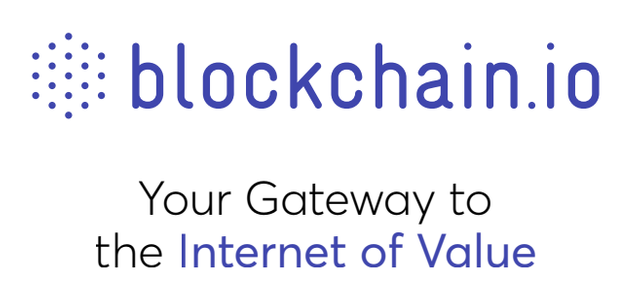Blockchain.io - review - https://blockchain.io/
Blockchain.io - https://blockchain.io/
-------- -------------
-------------
Bounty Campaign - airdrops - https://airdrop.blockchain.io
-------- ---------
---------
Bitcoin-blocking was established in 2008 in connection with the global financial crisis. As banks and large financial institutions were criticized for being reckless with the assets of people, Satoshi came up with a decentralized solution for currency exchange. The block chain relies on peer-to-peer technology and does not use the third party as an intermediate value for the transfer. The system is completely separated from the bank and relies only on the Internet. Decentralization is one of the main reasons why bitcoin is so popular.
------ -------
-------
In the vision Blockchain.io (https://blockchain.io/) Internet values are the next level of the development of the Internet. Cryptocurrency is something that you probably heard the most about, starting with Bitcoin. The easiest way to understand this is to not unravel the details of the extraction or digital money. Instead, focus on decentralizing trust.
The idea, if it is fully realized (and this is a huge "if"), can transform society. We can have transparent companies that truly reflect the will of their stakeholders, governments that truly reflect the will of their citizens, the Internet freed from corrupting value - the extraction of powerful gatekeepers, the end of fake news and the massive automation of everyday life for the betterment of humanity. Or, at least, we can have solutions that significantly improve the status quo. Decentralization is valuable in all possible ways.
Some of these rates on the crypto-currency revolution can be proved correctly. It's an exciting bet with potential growth potential, but still a game. There is a reason that real revolutions do not happen often. And when they do, it tends to be a serious collateral damage.
Blockchain.io (https://blockchain.io/) wants to combine "full-scale centralized exchange with low latency" with decentralized internetworking.
Nevertheless, at present most of the trading platforms of the cryptoasset are centralized, which can deny the purpose of a decentralized form of money. Let's quickly look at how centralized and decentralized exchanges work, and their respective advantages.
Most crypto-exchange platforms are based on centralized technology. Centralized exchanges (CEX) are online platforms that provide third-party technologies for the operation of transactions between cryptographic or currency currencies. Users do not own private purse keys that provide their funds, and transactions are performed through a centralized server.
The greatest advantage for centralized platforms is the trade in crypto-currencies with shorter delays and greater liquidity.
A relatively short unfinished transaction is the # 1 reason why most users prefer centralized exchanges. To generate a new block, each bitcoin transaction must be acknowledged in the block chain. To ensure algorithmic security, the transaction requires confirmation of at least 6 blocks. Since each new bit-block takes about 10 minutes to generate, it takes at least 1 hour before any transaction is confirmed. With CEX technology, traders trust third-party technology with their coins to take advantage of internal transfers that are executed within a few seconds.
Additional reasons are high trading volume and high liquidity. Until now, most of the exchange market was based on a centralized technology, so these platforms have a very large user base. CEX have high liquidity, which makes it easy to find a counterparty for any transactions made.
In addition, centralized exchanges can support fiat payment, which does not apply to decentralized platforms.
Despite these 3 main advantages (liquidity, shortening of terms and the possibility of exchange of currency currencies), there is one problem with CEX: it is much easier to hack than decentralized exchanges.
Decentralized exchanges imply greater security in cryptothermics.
Decentralized exchange (DEX) is an exchange between peer-to-peer networks, while users have full control over their funds and the ability to directly trade their wallets with an online settlement without overseeing any central authority. Transactions can be performed on smart contracts and nuclear swaps, using so-called hashed temporary contracts (HTLC).
DEXs are less vulnerable to attacks, because corruption of the peer-to-peer block chain will require an exceptional amount of energy, which prevents the majority. The group of miners will have to take control of more than 50% of the rate of hash traffic on the network in order to own a block chain and waste funds.
DEXs are still in their infancy. They are not as user-friendly as CEX. They do not offer as much functionality and do not offer the same liquidity. But they offer the level of security and transparency that the first bitlock fans expected in 2008. Does this mean that all crypto-currency traders should release their CEX accounts? Absolutely not. A trader of crypto currency should have everything: liquidity, low latency and security. So, how can he do this?
Centralized exchanges with a decentralized settlement offer both liquidity and more reliable security
. A new generation of exchange platforms that combines the technology of centralized exchange of custody with a decentralized "inconclusive" internetwork "fair exchange" may be the best solution. Users enjoy the efficiency of centralized exchange with low latency, full-featured centralized exchange when they need fast and liquid trading for large volumes, and they can move on to decentralized options if they want to make a transaction without third-party supervision, and thus, without the risk of a counterparty. This will be a big departure from traditional markets and an important step forward in the Internet Value.
The Blockchain.io platform will combine a centralized listing exchange with a decentralized "inconclusive" internetwork "fair exchange". The centralized exchange will be implemented with a low delay and full functionality, with custodial services, centralized ordering orders and effective order coordination.
The decentralized gateway settlement will be based on inter-chain nuclear swaps, that is, cryptographic protocols that allow users to process transactions through heterogeneous chain chains without third-party and without counterparty risk.
Trust exchange and exchange should encourage trade, while ensuring trust. This will be done only by a centralized exchange with a decentralized settlement.

Blockchain.io - https://blockchain.io/